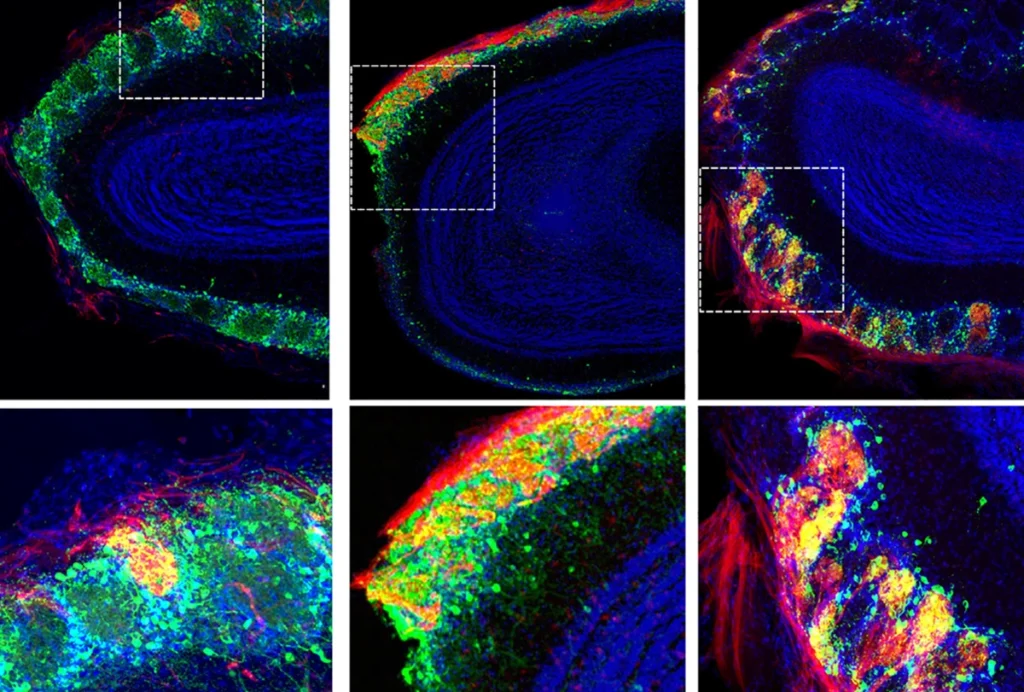Research roundup
- Autistic people tend to have more sleep problems than non-autistic people, which can affect mood and lead to anxiety and other daytime challenges, according to a review of studies. Autism Research
- An early autism intervention called Pathways, which centers on mutual gaze, may lead to improved social-communication skills if delivered to children before age 3. Journal of Autism and Developmental Disorders
- Measuring brain blood flow with functional ultrasound imaging appears to be a good proxy for neuronal activity. Neuron
- Autistic mothers who want to breastfeed their infants may have difficulty in part because of a lack of social support or access to maternity services, according to a review of qualitative studies. Autism
- Babies prenatally exposed to the COVID-19 virus have an increased risk of motor difficulties at 6 weeks of age, according to unpublished findings presented at the European Congress of Psychiatry meeting. The findings differ from those of an earlier study, on which Spectrum reported, that instead attributed early differences in infants’ motor and social development to pandemic-related stress during pregnancy. European Congress of Psychiatry Abstract # O015
- COVID-19 infection during pregnancy appears to increase babies’ chances of having a neurodevelopmental condition by their first birthday. JAMA Network Open
- Normalizing the conditions in which laboratory animals are kept may help researchers control for variability, but such conditions must also be recognized as artificial environments that can influence behavioral studies. Aeon
- Autistic adults report worse health-care experiences than non-autistic adults, and these experiences are linked to worse health. Spectrum has previously covered how the health-care system is failing autistic adults. Molecular Autism
- The presence and severity of autism traits vary in children with fragile X syndrome, Angelman syndrome, neurofibromatosis type 1 or tuberous sclerosis complex, suggesting a need for personalized assessment and care. Frontiers in Psychiatry
- An in-depth review outlines the value in using zebrafish as a model for neurological conditions. Last year, Spectrum reported on non-mammalian animal models in autism research. Zebrafish Model for Biomedical Research
- Autistic children’s language skills at age 3 appear to be related to their use of gestures at 12 months. Autism Research
- Intimate relationships between non-autistic and autistic people can range from mutual partnerships to a caregiver-and-dependent dynamic. Autism
- Autistic children attend to faces less than non-autistic children do when presented with a visual array of objects. Journal of Autism and Developmental Disorders
- Gene therapy has moved beyond past failures, but it is still hampered by unanticipated immune responses. Nature
Science and society
- A roundtable discussion on the specter of eugenics with genetic screening, sponsored by the National Human Genome Research Institute and held in May, is now available to view online. YouTube
- Researchers have made advances in understanding how the immune system interacts with brain tissue, beyond microglia. Nature
- Some autistic adolescents have behavioral issues that are beyond their parents’ capacity to manage, leading to crises and calls to emergency services. The New York Times
- The coronavirus pandemic has created a new population of disabled people in the United States and is affecting how disability advocates fight for policy change. The Washington Post
- There’s an app for that: The ‘Dilemma Game’ describes ethically murky situations in which research integrity is at risk and challenges scientists to puzzle through them. Nature

